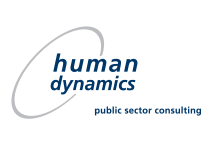
The project is financed by the European Union

Project implemented by a Consortium led by Hulla & Co. Human Dynamics KG
Montenegro is a candidate country for membership of the EU. Its European perspective was reaffirmed by the Council in June 2006 after the recognition of the country's independence by EU Member States.
Based on the decision of the EU Ministerial Council of 15th September 2006, a political dialogue was established at ministerial level between the Government of Montenegro and the EU institutions. The first such dialogue took place on 22 January 2007 and further political dialogue meetings take place annually.
By the act of signing the Stabilisation and Association Agreement in 2007, Montenegro formally agreed an association with the European Community and its Member States, thereby accepting responsibility for its European future.
The European Commission has acknowledged that Montenegro has made significant progress toward opening talks on EU membership and voiced support and gave recommendation for its candidate status on 9 November 2010 and on 17 December 2010 the European Union granted Montenegro the official status of candidate country.
In December 2011, the Council launched the accession process with a view to opening negotiations in June 2012.
The accession negotiations with Montenegro started on 29 June 2012.
Montenegro opened and temporary closed Chapter 25 – Science and Research (December 2012) and Chapter 26 – Education and Culture (April 2013).
Screening meetings on Chapter 27 Environment were held in February and March 2013.
The level of alignment is rather limited though the country made some progress in the recent years. In April 2016, Montenegro signed the Paris Agreement. The Government of Montenegro has given its consent to the Law on the ratification of the Paris Agreement and this legal act has been submitted to the Parliament. The national strategy in the field of climate change for the period 2016-2020 was adopted in September 2015. A draft law on climate protection is under preparation in accordance with the strategy and action plan. Montenegro needs to ensure that the strategy is implemented in a way that is consistent with the EU 2030 framework on climate and energy policies and well-integrated into all relevant sectors. The country also expects the approval of the GCF funds for the drafting of the National Adaptation Plan. In January 2016, Montenegro submitted its first Biennial Update Report on greenhouse gases to the UNFCCC. The 2nd Biennial Update Report is under the preparation. Elements of a new long-term climate strategy will be prepared with bilateral aid from Hungary; the project will begin in the coming months.
The main beneficiary institution of RIPAP in Montenegro is the Ministry of Sustainable Development and Tourism.